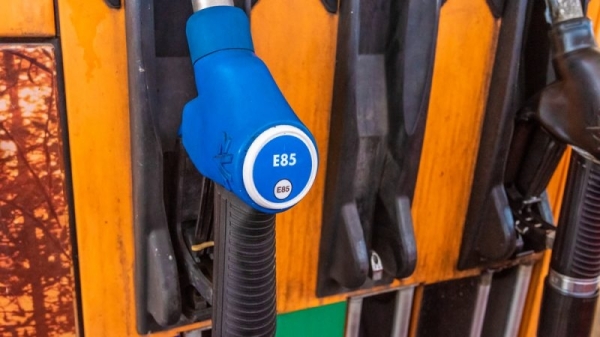French study boosts ethanol in road transport decarbonisation debate

A new French study found that hybrid vehicles running with up to 85% renewable ethanol (E85) are just as climate-friendly as electric vehicles if the “full-life-cycle” argument is taken into account.
According to the ethanol industry, the findings are key in addressing the ongoing deadlock in the EU debate on banning internal combustion engine cars from 2035.
The E85 means a vehicle runs on 85% renewable ethanol and 15% fossil petrol.
The life cycle analysis, according to the study, accounts for all greenhouse gas (GHG) emissions connected with the vehicle and its battery (from manufacture to recycling), as well as in the energy used (production, refinery, transport, distribution and combustion).
The findings were then applied to French and European electric power mixes.
“This comparison, applying to 2022 with projections for 2040, shows that plug-in flex-fuel hybrids running on E85 operating 40% of distance travelled as an electric vehicle are at least as climate-friendly as full electric vehicles, with the French electric power mix, which is already low-carbon, and even more with the average European mix, which has a higher carbon footprint,” the study reads.
The study also notes that plug-in hybrids running on E85 has advantages compared to full electric cars. It says when charging points are all occupied, drivers can travel for long distances without having to recharge their battery simply by filling up on E85, the study says.
Moreover, the study stresses that their batteries are smaller and thus use “fewer mineral resources produced outside the EU and less power during manufacturing”.
Contrary to worldwide trends, Europe has decided to gradually phase out crop-based biofuels such as ethanol.
Transport is responsible for 27% of total greenhouse gas emissions in the EU, and several pieces of legislation have so far failed to bring about major changes.
Environmental NGOs have long argued that relying on crop-based biofuels leads to a hike in food prices, considering that crops are being used to fill cars’ tanks rather than feed people.
The industry says crop-based biofuels such as ethanol are crucial in decarbonising transport, considering that the roll-out of electric cars will take many years due to high costs and relatively poor infrastructure.
A third revision of the Renewable Energy Directive is underway, and EU policymakers insist on a decreased role of conventional biofuels after 2030.
For its part, the industry has urged EU policymakers to come up with a “reality check”, considering that the EU executive has admitted that by 2030, oil will still drive Europe’s cars, despite the decarbonisation drive.
A ‘realistic’ approach
Referring to the ongoing debate over the ban on fossil fuel cars and potential alternative fuels, the European Renewable Ethanol Association (ePURE) commented: “It’s clear EU member states are now looking for a more realistic approach to transport decarbonisation that doesn’t rely on just one technology”.
ePURE insisted that even beyond 2035, renewable liquid fuels should have a role and stressed that the European renewable ethanol saves today “on average 77% GHG emissions compared to fossil fuel”.
The ethanol association emphasised that renewable fuels can help to preserve the affordability of mobility – a major concern, given the higher cost of electric vehicles – while rapidly cutting emissions.
Contacted by EURACTIV, the NGO Transport and Environment (T&E) described the study’s findings as “absurd”.
“Suggesting that plug-in hybrids running on a combination of fossil fuel and biofuel are as good for the climate as electric vehicles is absurd. This is a shameless attempt of the oil industry to keep selling fossil fuels at the expense of the climate and through colossal environmental damage from growing biofuels,” said Anna Krajinska, vehicle emissions and air quality manager at T&E.
She added that setting CO2 targets based on tailpipe emissions is the only way to ensure Europe’s car fleet goes pollution free.
“Policymakers must honour the agreed 2035 engine phase-out date. Anything else risks derailing Europe’s climate targets and leaving the door wide open to fossil fuels,” Krajinska noted.
In its response, T&E also stressed that the study did not take into account improvements in the carbon footprint of battery production in Europe and that it also “overstated” the carbon intensity of the electricity grid in France and the EU.
They pointed out there is no guarantee that the plug-in hybrid electric vehicles will be driven 40% electrically, as “many PHEVs in Europe are rarely, if ever, charged and driven electrically, especially company cars”.
Despite repeated requests by EURACTIV, the European Commission was not available to comment on why the executive does not consider the lifecycle argument in CO2 road transport calculation.



